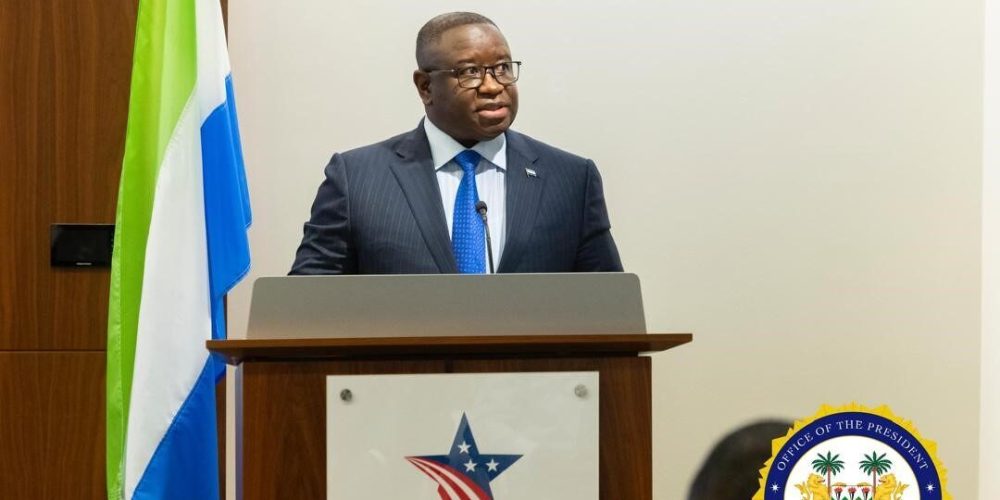His Excellency President Julius Maada Bio has hailed the signing of the USD $480 million Millennium Challenge Corporation (MCC) Energy Compact as a “significant milestone” for Sierra Leone, committing to the successful implementation of the historic investment aimed at overhauling the country’s energy sector. The ceremony, was attended by top U.S. officials and MCC CEO Alice Albright, who joined in celebrating the partnership between Sierra Leone and the United States.
Speaking in Washington D.C., United States, on Friday, 27th September, 2024, President Bio expressed his deep sense of accomplishment, recognizing the Compact as a key driver of Sierra Leone’s development goals. “This signing is not just a formal agreement, it represents a transformative leap for our nation. The MCC Energy Compact will play a pivotal role in enhancing electricity access, which in turn will spur economic growth, innovation, and reduce poverty,” he said. He highlighted that reliable energy is crucial to powering Sierra Leone’s industries, homes, and public services.
President Bio emphasized that the initiative is aligned with Sierra Leone’s Medium-Term National Development Plan and the Sustainable Development Goal (SDG) 7, which focuses on ensuring access to affordable, reliable, and modern energy for all. “The Compact will bridge the energy gap between urban and rural areas, bringing sustainable and reliable power to communities across Sierra Leone,” he noted affirming that the Compact is a game-changer for Sierra Leone, opening doors to industrialization, improving public services like healthcare, and creating opportunities for youth employment.
President Bio reaffirmed his government’s commitment to transparency and accountability in the implementation of the Compact and expressed profound gratitude to the U.S. Government and the MCC for their partnership and trust in Sierra Leone’s development trajectory.
The signing of the MCC Energy Compact is expected to not only advance Sierra Leone’s journey toward energy security but also position the nation as a key player in the regional energy market.
Credit: State House Media and Communications Unit





